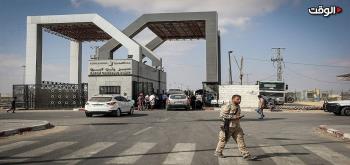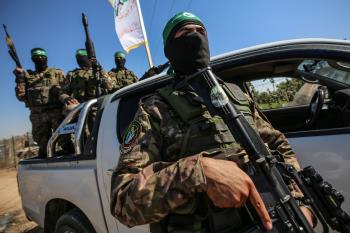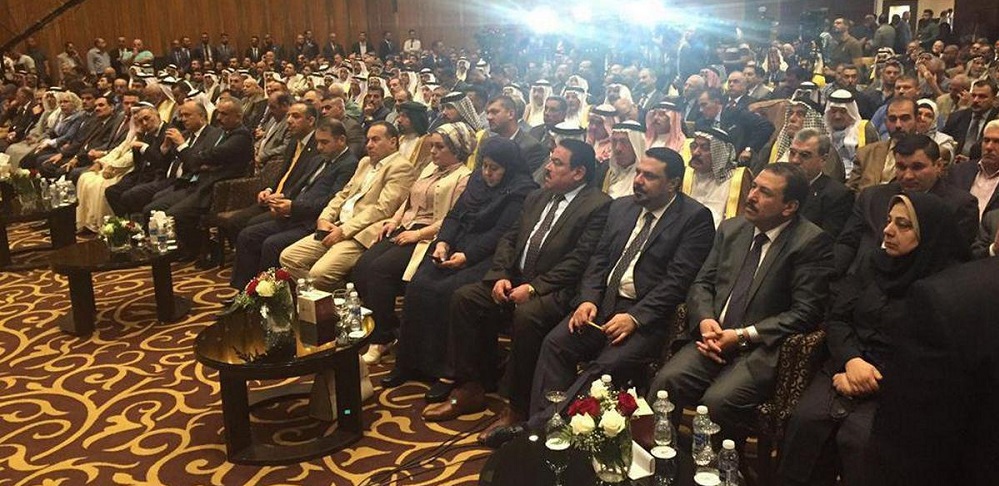Alwaght- The Iraqi capital Baghdad was expected to host a conference that gathers together Sunni Muslim leaders, from all parties and groups, with the aim of creating united leadership for the Sunnis of Iraq, now that the military has driven out of the country the ISIS terrorist group.
But the meeting was delayed due to internal Sunni fragmentation, especially among the parties constituting the parliamentary bloc Sunni Forces Alliance (SFA). Other reasons behind the delay included the country’s central government opposition as well as the judiciary's ban on presence of the legally wanted figures. SFA, however, argued that the event was postponed as it coincided with a military parade the Prime Minister Haider al-Abadi ordered to be held at the same day.
Preparations had started almost a month ago, with Salim al-Jabouri, the parliament’s Sunni speaker, asserting that it will be supported by some regional sides like Saudi Arabia, Qatar, the UAE, and Jordan, and will plan a Sunni donor conference set to be held in Kuwait in subsequent months.
Some legally wanted figures like Rafi al-Issawi, former Iraqi finance minister, and Atheel al-Nujeifi, the former governor of Mosul when the city fell to ISIS, were invited to the meeting. Both of them are convicted of terror links and actions.
Earlier, Sunnis held inter-Sunni union conferences in Jordan, Kurdistan region, Qatar, and Turkey to ensure unity for an effective role in the country’s political scene. Others were also set for holding in France and Saudi Arabia but were called off under strains from the Iraqi government.
Other factors for the delay included internal Sunni fragmentation that showed itself in media just before mid-July delayed conference. The division led to holding a separate conference, dubbed Baghdad National Conference, on July 13 attended by al-Anbar tribal leaders and 25 lawmakers from SFA.
The July 13 conference organizers, mainly moderate Sunnis of the country, said they removed word “Sunni” from the title to steer clear of sectarianism. The participants recognized the central government as the main reference of law. They also called on reconstruction of the recently retaken Sunni areas to pave the way for refugees return. The slogans focused on a national agenda instead of a sectarian one. It ended in a suggestion to rebrand Sunni Forces Alliance to National Forces Alliance.
At the same time, a conference was held in Erbil, attended by Rafi al-Issawi and Atheel al-Nujeifi. The organizers said they reached an agreement for a trans-sectarian political alliance. The conference insisted that arms have to exclusively be at the government forces' hands now that the country is getting rid of terrorism.
Why are Sunnis of Iraq fragmented as contradictory conferences show?
1. Reliance on foreign sides
The analysts argue that a key factor behind Sunni leaders' division is their reliance on foreign parties including Saudi Arabia, Turkey, Qatar, and the UAE. The countries' conflict of interests inflames discords between their Sunni loyalists inside Iraq. Saudi Arabia has reportedly withdrawn support to Baghdad conference as its diplomatic rift with Qatar and in a wider range with Turkey keeps unfolding. Saudi Arabia has been a keep supporter of Sunni summits in past three years, and this is the first time that differences with Qatar and Turkey disrupt its backing.
Some pro-Saudi Sunni figures cancelled their conference attendance as Riyadh dropped support for the event. Among them was Khamis al-Khanjar, the secretary-general of Arab Project in Iraq. He is a millionaire and funded a majority of the Sunni gatherings abroad.
On the opposite side, Salim al-Jabouri, a member of Iraqi Islamic Party as an affiliate of Muslim Brotherhood in Iraq and close to Qatar, and Osama al-Nujeifi, the country’s vice-president who is pro-Turkey, supported proceeding to hold Baghdad conference.
2. Sunnis lack political and religious leadership
In the Iraqi Sunni structure, agreed-upon religious and political leadership looks quite missing. Reliable leadership could help avoid tensions between various Sunni factions, and going under domination of foreign sides.
3. Decisions of Sunni conferences outside Baghdad
Some Sunni figures come against any foreign interference in Iraq’s internal affairs, and argue that offers of help to the Sunnis aim at opening interference channels in the country.
Baghdad National Conference came against sectarianism and foreign interference. Mahmoud al-Mashhadani, the former parliament speaker, insisted that any foreign aids to rebuild Sunni regions should pass through the channel of the central Iraqi government. The participants dismissed as invalid the outcomes of the March Istanbul conference that discussed future Sunni leaders’ election. 13 July conference attendees said they could reach agreement with other Sunni sides if Istanbul conference decisions are revoked.
Abdul Rahman al-Lowayzi, another organizer of the Baghdad meeting, said that Erbil conference that was attended by legally wanted figures was a continuation of Istanbul conference that stands as a showcase of foreign intervention in Iraq’s domestic affairs.
4. Division over Sunni leadership in post-ISIS Iraq
Regional countries with sway over different parties in Iraq seek their favorites' rise as Sunni leaders in the future. This race for favorable figures by itself turns into a divisive point.
Mohamad Tamim, a leader in Sunni Mutahedun alliance, has pointed to the differences that preceded the delayed Sunni conference, saying that various factions clashed as each of them insisted on having a representative in new Sunni leadership board.
5. Foreign funding
Financial support pouring in from foreign states such as Saudi Arabia have been crucially sowing divisions among the Iraqi Sunnis. Some National Baghdad conference attendees accused some Sunni figures of struggling for political posts and better financial conditions through attracting foreign funding and organizing the expected Sunni conference.
Al-Lowayzi revealed that some Sunni elements seek relations with Persian Gulf sheikhdoms to receive the pledged $140 million for reconstruction of damaged Sunni regions. He further disclosed that nearly $70 million of the money could be spent on the Sunni campaign for 2018 parliament election.



























